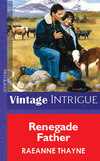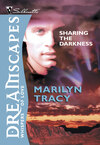Kitabı oku: «At Close Range», sayfa 3
Chapter 3
Mack was grateful for the icy chill of the night. He gulped at the air like a drowning man. He could hear the laughter filtering through the French windows of the veranda and could still feel the impression Analissa’s little hand left behind. He listened as the heavy door opened and closed. And knew without looking around that it was Corrie Stratton who’d followed him outside.
She was the last person on earth he wanted to see at that moment. She made him want to tell her things, hard things, raw things he’d rather keep locked inside.
“It takes some getting used to,” Corrie’s sultry voice said from behind him.
He thought about all the times he’d listened to her voice pouring out of the radio into the dark hospital burn unit during his long recuperation. She’d been a friend telling a late-night bedtime story, a woman who talked with kings and soldiers far away and relayed their stories back to those waiting to hear her voice again.
“Overwhelmed?” she asked, stepping up to join him at the railing surrounding the broad veranda.
For some reason, he didn’t want to lie to her, and he wanted to hear that beautiful voice, so he didn’t answer her directly. “How long have the children been here?”
“Let’s see. José and Dulce were the first and they came the same week about a year ago. I think Jason came next, then Tony, Jenny and Juan Carlos. Then Analissa. She’s been here about three weeks. She’s a doll.”
“Tell me about them,” he said.
Corrie leaned against the railing. “No one knows where José came from. He just showed up here one day when Jeannie was first finishing renovations on the place. We’ve searched and searched, but no luck, and if José knows, he’s not saying. Jeannie and Chance have moved five or six mountains to try to unravel the paperwork involved in adopting a child who has seemingly sprung from nowhere. They’re not through the wringer yet, but with the status here for long-term foster care, we all hold high hopes. Dulce was orphaned as a child and was shuffled from one foster home to another until she was so filled with attitude and distrust that she could hardly say her name without spitting at you.”
Mack wondered if Corrie knew her cadence had slipped into a storyteller’s rhythm, graceful and filled with hints of magic. He leaned against one of the large, round viga-pole supports and said, “She’ll be a beauty, that one.”
Corrie agreed and continued, “Tony has parents, but his father is in prison and his mother placed him in the foster-care system because she couldn’t handle things. He’s been in the system now for three years.”
“A lifetime to a kid his age.”
“One third of it, anyway. And Jenny’s father took off shortly after she was born and her mother’s in the hospital having her fifth child. Five children, five different fathers. Not one of them involved with their contributions to the world.”
“What about her brothers and sisters?”
“The grandmother can manage them, she says, but claims Jenny wouldn’t do anything she was told.” A sharp note edged Corrie’s normally soft tones.
“That’s the little girl who never said a word tonight, right?”
“That’s our Jenny. She’s eleven and behind three grade levels, though there’s nothing wrong with her mind.”
“And Juan Carlos?”
Corrie gave a soft chuckle. “That child is a handful. He came to us from a group home in Portales. That’s a town about a hundred and thirty miles north and east of here.”
Mack knew where it was. He’d finished his student teaching there on an exchange with Texas Tech. “What brought him to you?”
“Firecrackers in the toilets,” she said matter-of-factly, with a strange little smile. “I guess the system figured that we were so remote, we probably didn’t have plumbing, so he couldn’t hurt anything.”
“And has he?”
She looked up at him and smiled. Again, he felt that fever. “He hasn’t blown anything up, if that’s what you’re asking. Has he gotten in trouble? That’s his middle name.”
“And what about the other boy, the one with the crush on Dulce?”
“Jason? Does he have one?” Corrie asked. “I should have guessed. He’s always really quiet around her. He’s here for just a few weeks. His mother took off when he was three. His dad’s a fireman and was called up to go to one of the fires in the Northwest.”
“No relatives?”
“Not a one. Poor guy.”
Mack didn’t know if she meant the father or the son. “And Analissa?”
“She’s our resident ray of sunshine. Her parents skipped out on her years ago and her aunt’s just gone into drug rehab for the umpteenth time. The authorities found Analissa when they busted the aunt for dealing. The poor baby was literally wearing her own waste and so hungry she couldn’t keep anything down for the first three days.”
“Jeez,” Mack said. “Did they bring her straight to you?”
“After the hospital, yes. You can see why she wants promises.”
“Everyone wants promises,” Mack said roughly.
“Do you?” she asked.
Her question jackknifed through him. He felt the heat of the fire that changed his life. He heard the screams of children calling for help. He smelled the putrid-sweet scent of burning flesh.
“No,” he said too harshly, then realized his quick exclamation sounded like a denial.
“And why is that?” she asked almost lazily. Dreamily.
“Are you doing a story?”
“No. Are you ducking the question?”
He couldn’t help but chuckle. He could see why she’d managed to interview the amazing personalities she had over the years. “No. Yes. I don’t know. I just don’t believe in promises anymore.”
“Miracles, but not promises?”
“If you like,” he said.
“That’s rather sad, Mack Dorsey.”
“Realistic.”
“Is there a difference?” she asked, and pushed herself away from the railing. “It’s been my experience that reality and sorrow seem to travel hand in hand.”
“That’s life,” he said, still refusing to look directly into her eyes.
“Has it always been like that for you or did something happen that made you feel that way about life?”
He didn’t dare answer her, although just being with her almost made him want to.
“Not everything is sad,” she said quietly.
“But some things are too sad to bear.” He thought of the parents waiting outside the schoolhouse that day, the way they held on to each other, as if the weight of their tragedy was pulling them down to the ground.
“That’s what Jeannie used to believe, after her first husband and baby died. We thought for a while we were going to lose her, too. When she cried, it came from her very soul, not just her heart.”
“I didn’t know,” he said. He felt as if he were choking.
“Then she moved here and found her miracle.”
“Chance?”
“And Dulce and José. This place. All of the children.”
“And you?” he asked. “Have you found your miracle?”
She turned away from him a bit. “It’s a miracle enough just being here,” she said in a muffled tone, and he knew she was avoiding his question. She had a look of such longing on her face he wanted to put his arms around her and tell her that she deserved more than just being here, that a miracle was waiting for her just around the corner. But she, who had been trained to listen for the truth, would hear the lack of faith in his voice. He kept silent, watching her tuck her hands into her loose sleeves and hunch forward, giving herself the hug he hadn’t dared give her.
“It’s cold out here,” she said.
In other circumstances, he’d have agreed, but with her standing too near him, it felt anything but cold.
“Last year at this time, it was nearly a hundred degrees in the shade.”
He made some noise he hoped she’d take for assent, though he wouldn’t have known about the weather; he’d still been locked up in a hospital at this time the year before.
“What made you go into teaching?” she asked.
He grimaced. “It sure wasn’t the opportunity to mold young minds.”
“No?”
“I was one of those problem kids, you know the type, the cutup, the class clown, the kid who would never sit still or shut up.”
The look she gave him let him know how remotely he resembled that person now. He was surprised to find that notion troubled him. Until the incident that changed so many lives, including his own, he’d been secretly proud of the fact that one principal hid in his office to avoid his protests over how some of the children were treated. Stuffy teachers wrote copious memos about Mack’s out-of-the-box disciplinary tactics. Mack had been vaguely pleased to be called a rebel, proving the old adage that some kids never grow up.
But, despite her overt disbelief in his ever having been anything resembling a class clown, she understood where he was going with his story. “So you chose to change the system from within?”
“Something like that. I was a seventies kid, so the schools were stuffed full of half-baked ideas from the sixties, trendy notions from the seventies and economically based concepts predicted for the eighties.”
She smiled. “I was there. I know what you mean. Happy faces and dollar signs.”
He nodded with a half smile. “That’s it. The kids become guinea pigs for the latest educational theory. And when the program doesn’t work, it’s dropped—thank God—but the kids still lose. Big business was helping pick up the tab, so bottom lines became the focus—”
“—and the bottom line in school terms is standardized tests.”
“You’ve got it.”
“And you wanted to change this?”
“Let’s say, modify it. I’m a firm believer in the individual.”
“Why not go into administration?”
He gave a mock shudder. “I’m inherently anti-paperwork.”
“And rebels with a cause don’t rise to the top in administrations.”
He found himself liking her, despite his desire to steer clear of personal involvements. He’d admired her from the privacy of his hospital room, listening only to her voice. He’d liked her clarity, her compassion and her attention to detail. Now, standing beside her on Rancho Milagro’s broad veranda, he found himself warming to her in a way he’d thought lost to him forever.
“I imagine you were a rebel, also,” he said.
She gave an abrupt gurgle of rueful laughter and shook her head swiftly. “Anything but,” she said. “I was the good little girl who always did precisely what she was told.”
He had trouble accepting that notion. She’d traveled the world, been in some of the most dangerous places, come back with heart-wrenching stories of pain and hope. A good little girl would avoid such situations like the plague. “How about later?” he asked.
“Exactly the same—always a follower, never a leader. A true coward, in essence.”
He shook his head, not necessarily disagreeing with her but unable to reconcile his preconceptions of her with what she stated was the reality. The Public Broadcasting System’s motto for her ran through his mind. “When Corrie Stratton says it’s true, it’s a fact.”
“I’d better get going,” he said. Once upon a time, he’d have lingered on this veranda, clung to the time with a pretty woman and a chilly night. Back in that time, he’d have believed in futures, been blind to the pitfalls and dangers that lurked in the shadows.
“Oh. Okay.” She looked understandably confused.
“Good night,” he said gruffly. He curled his hand into a fist to avoid raising it to her silken face.
“Do you want a flashlight to get back to the bunkhouse?” She turned to face him. The movement was abrupt and unexpected.
He wished she hadn’t turned to face him. Her eyes were too luminous in the light cast from the windows, her face too guileless and, for some reason, wistful. He could read the curiosity there and a tinge of sorrow or pity. But he couldn’t see the quest for the news story he’d half accused her of pursuing only moments before. He saw a lovely woman on a cold, moonless night, a woman who had come to offer comfort or perhaps mere camaraderie, and he’d closed her out.
It was best that way, he thought. As he’d told her, he didn’t believe in promises. Lost in his thoughts, he’d forgotten her offer of a flashlight.
“No, thanks,” he said, “I can see my way. You’d better get in before you freeze.” But he was the one who turned to go.
“As Juan Carlos would say, watch out for ghosts,” she said.
“I’m used to them,” he said.
“Plural?”
She was too quick, could hear too much. He turned back to face her but didn’t quite meet her eyes. “Plural.”
“As in, you’re used to more than one ghost.”
“As in,” he agreed, almost enjoying the interplay.
“Are you speaking metaphorically or literally?”
“Both,” he said.
“A man who speaks on multiple levels. Hmm. And talks in riddles.”
“We all have ghosts,” he said.
“But most people call them baggage, not ghosts.”
“I could say I’m not most people.”
She gave a slow smile. “I think I’d agree.”
He tried a smile in return, but it felt odd on his lips. “I think I’ll turn in,” he said, lying through his teeth. If tonight were like any other, he wouldn’t sleep until nearly dawn.
“Good night, then,” she said. “Dream of the angels.”
One angel in particular, he thought. “Right,” he said. “You, too.”
“Always,” she said, rocking against the cold. She didn’t seem like a child then; she was everything a man could possibly want on a lonely night. And if he didn’t walk away from her that very minute, he’d find out exactly what kind of a miracle it would feel like to have her in his arms.
He gave her a stiff half wave and got off the veranda as quickly as he possibly could. He wasn’t far enough away, however, not to hear her clear voice murmur, “What are you hiding, Mack Dorsey?”
Chapter 4
From her suite in the main hacienda, Corrie could see the light on in the teacher’s bunkhouse and knew Mack Dorsey was awake as well. He’d looked tired, even exhausted when he’d hurried from the veranda, but somehow she wasn’t surprised to see his silhouette pacing behind the curtains in the wee hours of the morning.
She was sorry he was out there alone. After a terrible incident the year before when a truly evil man kidnapped Dulce and José in an attempt to force Jeannie to turn the ranch over to him, Jeannie and Chance had decided the ranch hands’ sleeping quarters should be much closer to the main hacienda and a new wing had been added. The former staff bunkhouse had been converted to a large, communal-style teachers’ living quarters. But Mack was the only one there now.
Part of her wanted to go offer him some comfort, see if he was in pain, or simply see if he needed some little item he might have forgotten. The other part, the rational side, told her that whatever made him restless was none of her business and she’d be well advised to let him alone.
She turned back to her notebook. He walks alone, late at night. Ghosts trail behind him, calling his name.
She groaned—the same could be said of her. Too many ghosts, too many harsh words, too many people claiming her past.
She tossed her pen aside before turning off her own light, as if shutting him out—both physically and mentally.
The narrow aperture of her curtains let Mack Dorsey’s lit window shine like a full moon with tidal-wave intent. His shadowy form became a sharp focal point. She held her breath, watching him walk back and forth across the curtained lens.
Feeling like a voyeur, Corrie yanked her curtains closed and turned over on her bed so she wouldn’t be able to even imagine she could see his pacing figure. After a few minutes, she swore and sat up in bed. She dragged open the curtains, her eyes automatically seeking the false moon of Mack’s window. Though his silhouette was no longer visible, the light remained on.
Corrie checked the clock on the nightstand. Half past three in the morning.
She sat for several minutes, waiting for the light across the drive to turn off, and when it didn’t, she sighed and swung her legs out of bed. She dragged on the pair of sweatpants she’d worn earlier that day and shoved her bare feet into a pair of boots Dulce had given her, not caring that they were two sizes too big.
She snatched up a bottle of aspirin from her bathroom cabinet, a book from the bulging bookcase on the wall and, not questioning why, a pen and empty notebook from atop her desk. She shoved all these items into the pockets of the elegant duster Leeza gave her two months ago and opened the exterior door to the veranda.
She shuffled across the broad expanse of driveway to the guest quarters and hunched in her duster as if snow lay on the ground, shivering in the cold desert air.
She marched up the stairs of the teachers’ quarters, but, as she raised her fist to the front door, her need to help Mack Dorsey dissolved and so did her resolve. She back stepped, feeling like a fool, hoping he hadn’t heard her determined scuffles across his narrow porch.
He was a grown man, for heaven’s sake; not one of the wounded children that needed tending as if he were a little bird with a broken wing. His cold eyes could lance evil at eighty yards; he wouldn’t need a painkiller for the bruises inflicted by some drunken uncle or father. He wouldn’t need a book—and a soft voice—to lull him to sleep, or a pen to write his experiences down. He would know how to survive until morning.
One of the porch steps creaked beneath her too-large boots as she turned to go. As if the stray sounds were an alarm system, the bunkhouse door flew open and made an enormous clang as the heavy metal hinges collided with the brackets against the side of the house. Light spilled from the teachers’ quarters, incandescence escaping into the night.
Mack Dorsey stood silhouetted in the light, naked to the waist, barefoot, and standing as if he anticipated a grizzly to rush him. His knees were bent, his bare feet spread apart, as if he anticipated a need to move quickly. He held his hands out from his sides as though she might attack him.
“It’s me,” she said. And when his eyes strafed the brightly lit driveway at the main house and jerked back to where she stood, she realized how foolish she sounded. “Corrie. Corrie Stratton.”
He muttered a curse before slowly straightening.
“Sorry,” she said. “I didn’t mean to—I was just…”
“It’s okay,” he growled. The light behind him blocked her from reading his face.
“New place,” he said gruffly
That he was in a new place didn’t account for the hours of pacing. “I saw your light on. I thought perhaps you needed something?”
He turned his head toward the main house, eyes zeroing in on the only light visible, then, back to her. “You were up at this hour?”
“Drink of water,” she lied.
“Me, too,” he lied right back at her.
“Oh. Of course. So you don’t need anything?” At best her question sounded lame, at worst it sounded like a come-on. She blushed.
Luckily, he didn’t seem to read meaning into her words. “You and your partners have thought of everything. Except for clothes, I wouldn’t have had to bring a thing.”
And he wasn’t wearing many of those, she thought. “Jeannie gets all the credit,” she said, and hoped he didn’t hear the breathlessness in her voice.
“She deserves it,” he said.
She shivered against the cold. Despite his lack of clothing, he seemed impervious to the deep chill and she wondered if his many wounds, the scars she could only faintly discern in the dimness, blocked the sensation of cold.
“Well…thanks for thinking of me,” he said. His hand ran the length of his torso, a wholly unconscious gesture, but one that robbed her mouth of moisture.
“What?” she asked.
“Thanks for thinking of me.” There was a bitter note in his voice.
She’d thought of little else since she opened the front doors to find him standing there for an interview. But at his words, she felt like a three-year-old being dismissed by a social worker.
“Okay. Sure. As long as everything’s okay,” she said, her voice faltering. “I’ll—I’ll just go back now.” She turned, embarrassed she’d come out there, disturbed at the fact that she had, and that she’d done so armed with a handful of items more suited to welcoming an adolescent than an adult who had obviously survived more than his share of hardship. And then to stare at him like a love-starved teenager. She might be love-starved, but she wasn’t a kid anymore.
However much she might be acting like one.
I’m Corrie Stratton, and if I survived my childhood, I can survive this.
Mack felt like a heel. All she’d done was come to check on him. She’d seen his light on at three-thirty in the morning his first night on the ranch, and had come out into the cold out of simple kindness and concern for him. And he’d greeted her as if she were a terrorist, was curt to the point of rudeness, then capped it off by lying to her and making her feel like she’d intruded.
“Wait. Please…?”
She stopped but didn’t turn around. “Yes?” Given her voice, even that single questioning syllable sounded like a chord straight from paradise.
“Do you have any aspirin?”
She slowly revolved back to face him and dug into her pocket. She withdrew a paperback, a notebook, a pen and, finally, a bottle of aspirin. She handed him the plastic bottle.
“Thanks,” he said, working at the childproof cap. He had to fight himself not to ask about the other items she started to shove back into seemingly rapacious pockets. But he knew instinctively that she’d brought them for him for some reason.
“Here, let me,” she said, bridging the gap between them as she stuffed the last of her things back into her pocket. She held out her hand for the bottle and he gave it up without a struggle, careful not to touch her. He was too aware of her standing so close to him in the night, too aware of his own near nudity, his terrible scars she didn’t so much as look at, and the way the merest hint of a breeze on the cold night air seemed to tease his newly formed skin.
She flipped the aspirin bottle open and held it out at an angle, apparently prepared to shake them into his hand. Her hands trembled so much that only three aspirin fell onto his hand and a few more disappeared onto the ground. He closed his palm around her shaking fingers.
“Did I scare you when I threw the door open?”
“Yes…and no,” she said, with simple honesty and not a single hint of accusation.
He couldn’t resist lifting his free hand to cover the tiny one he had trapped. “I’m sorry,” he said.
She gave a half grimace. “Nothing to be sorry about,” she said. “It’s no big deal.”
He felt her hand fluttering in his, a small wild bird. He lifted his fingers and hers took wing. As she’d done when he’d arrived at the ranch, she curled her hand in to her chest.
“Thanks,” he said, though he wasn’t sure what he was thanking her for.
“You’re welcome,” she said, but that liquid silk voice of hers seemed to be thanking him instead.
For a moment, an invitation to come inside his new home curled around his tongue. But it tasted too perfect, too sweet. And he was no longer a man who believed that good things were possible. They were only to be desired. But just for a moment he wondered if her skin would feel as smooth as her voice, if her hair would smell as sweet as the expression on her face.
“I hope the aspirin helps,” she said, and with a little wave, she turned away from him again, but this time without the look of hurt rejection or the blaze of painful color staining her cheeks.
He let her go, but stood outside until she was back at the main house and inside. He waited until he saw her light go out, and continued to wait until all he could see was his own breath freezing in the air.
He dry-swallowed the aspirin left in his palm and went inside the bunkhouse. His new skin tingled, both from the cold and from thinking about Corrie. He thought about how her hand had felt in his when he shook it earlier in the day, and how it shook in his during the dinnertime prayer. How it quivered beneath his fingers just now.
What would make a woman of the world, an icon like Corrie Stratton, so nervous that she trembled? A possible answer popped into his head, only to be rejected. A woman with Corrie Stratton’s background, her voice, her looks, wouldn’t be rendered vulnerable around any man, let alone a teacher with more scars than God should allow.
What kept her awake at night, watching him pace the floor some two hundred yards away? What were her ghosts? What was the miracle she sought?
Strangely, once back inside, he felt sleepy. He wasn’t exhausted, restless or even weary. He was just sleepy. More strangely still, he fell asleep almost immediately after turning off his light.
But not so strangely, he dreamed of a woman with delicate fingers and an angel’s voice, and somehow, in the dream, he knew she carried miracles in her coat pocket and, in the wake of her magic, he started to believe the promises in her eyes.
Ücretsiz ön izlemeyi tamamladınız.











